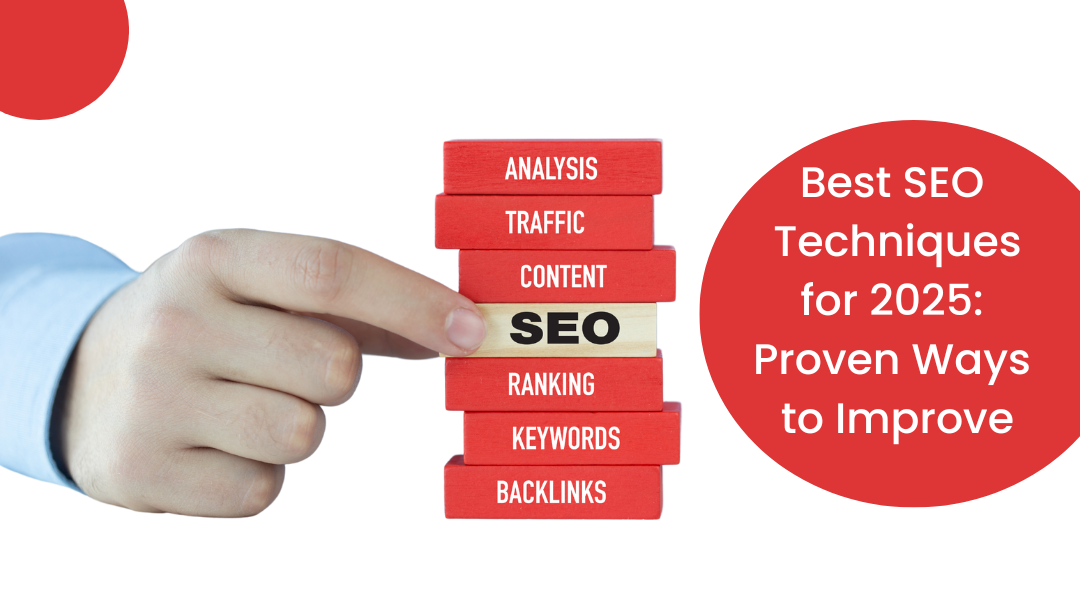In 2025, SEO (Search Engine Optimization) is more important and complex than ever. With search engines constantly evolving, what worked last year might not be as effective today. Let’s look at the best ways to keep your SEO strategy strong in 2025, from mastering the basics to staying ahead of new trends.

Content is still king in 2025, and Google continues to reward websites that offer valuable, well-researched, and relevant content. Think of your audience’s needs first: what questions are they asking? What problems are they trying to solve? Create content that answers these questions in a clear, engaging way. Aim to include useful information, unique insights, and practical tips that your readers can’t easily find elsewhere.
Here’s a quick tip: use “People Also Ask” on Google to find related questions that people are searching for and address them in your content.
Voice search continues to grow as more people use smart devices and voice assistants like Siri, Alexa, and Google Assistant. In fact, voice search is expected to make up nearly 50% of all searches by 2025. To make your content more voice-friendly, consider the way people speak. Optimize for conversational keywords, focusing on questions and phrases people naturally say out loud.
For instance, instead of “best coffee shops NYC,” think of phrases like, “What are the best coffee shops in New York City?”
With over 60% of searches coming from mobile devices, having a mobile-friendly website is critical. Search engines now prioritize sites that are optimized for mobile. Make sure your site is fast, easy to navigate, and looks good on small screens. Mobile optimization includes:
- Fast loading speeds (aim for under 3 seconds)
- Clear layout and easy-to-read text
- User-friendly navigation
Using Google’s Mobile-Friendly Test tool can help you see how well your site performs on mobile and what you can improve.
Core Web Vitals—metrics like loading speed, interactivity, and visual stability—play a big role in SEO. Google wants to ensure that sites offer a smooth, enjoyable experience for users, so improving these metrics can boost your ranking.
For example:
- Largest Contentful Paint (LCP): This measures loading performance. Aim for 2.5 seconds or faster.
- First Input Delay (FID): This measures interactivity. Your goal should be 100 ms or less.
- Cumulative Layout Shift (CLS): This measures visual stability. Keep it under 0.1.
AI tools are increasingly valuable for SEO, helping you analyze data, predict trends, and create better content. AI can help identify keywords, optimize meta tags, and even suggest content topics based on search trends.
Tools like Jasper AI and ChatGPT can generate content ideas, while platforms like SEMrush use AI to analyze competitors’ strategies and find keyword opportunities.
People are drawn to visual content, and video remains one of the most engaging formats. Google increasingly highlights videos in search results, especially for “how-to” queries. Using YouTube SEO (optimizing titles, tags, and descriptions) can improve your visibility in video results. Make sure your video is relevant to your topic, and include transcripts and captions to help search engines understand its content.
Local SEO is still important in 2025, especially for businesses with physical locations. Nearly 80% of local searches on mobile devices lead to a purchase within 24 hours. Focus on these strategies for local SEO:
- Claim your Google Business Profile and update it with accurate information.
- Encourage customer reviews.
- Use local keywords like “near me” or location-specific terms to attract nearby customers.
E-A-T is Google’s way of evaluating if a page is trustworthy. Sites that consistently show expertise, authority, and trust are more likely to rank higher. Here’s how to improve your E-A-T:
- Build high-quality backlinks from reputable sites in your industry.
- Showcase your author’s credentials on blog posts.
- Be transparent about your company, products, and privacy policies.
Google makes thousands of updates to its algorithm every year, so keeping up is essential. Follow SEO blogs like Moz, Search Engine Journal, and Google’s own blog for updates and best practices. Adjust your strategies based on what’s working and what’s new.
Wrapping Up
In 2025, successful SEO means focusing on user experience, providing valuable content, and optimizing for the ways people search. Staying on top of these trends and continually improving your site will keep your SEO strategy strong, helping your website rank higher and attract more visitors. Remember, SEO isn’t a one-time effort—it’s an ongoing process that evolves along with the digital landscape.